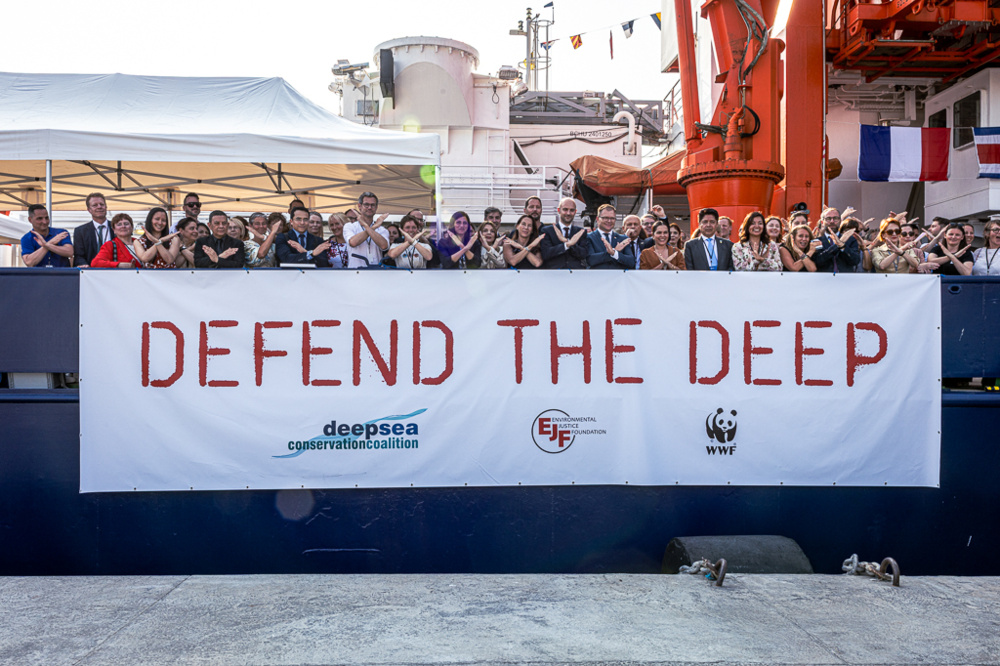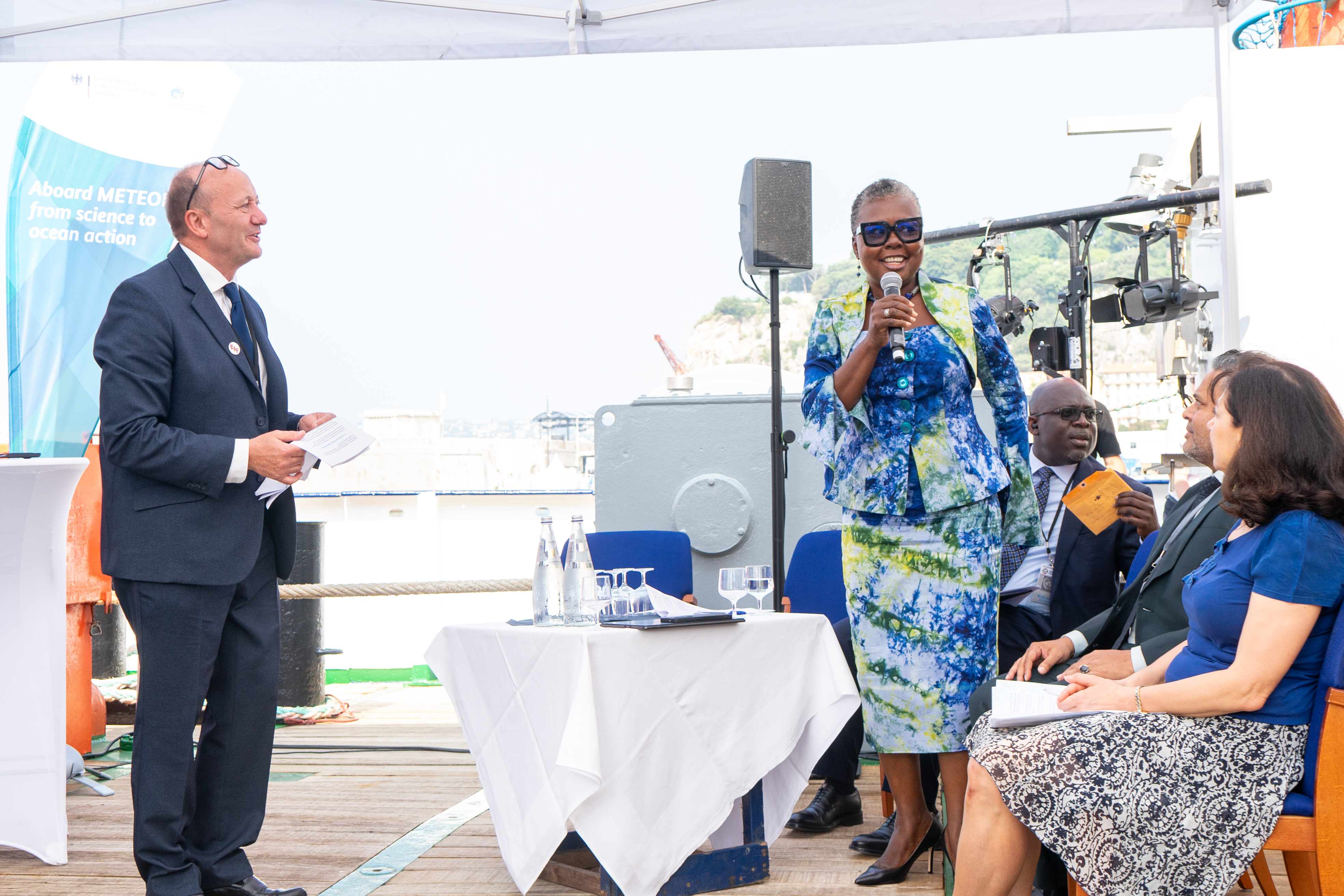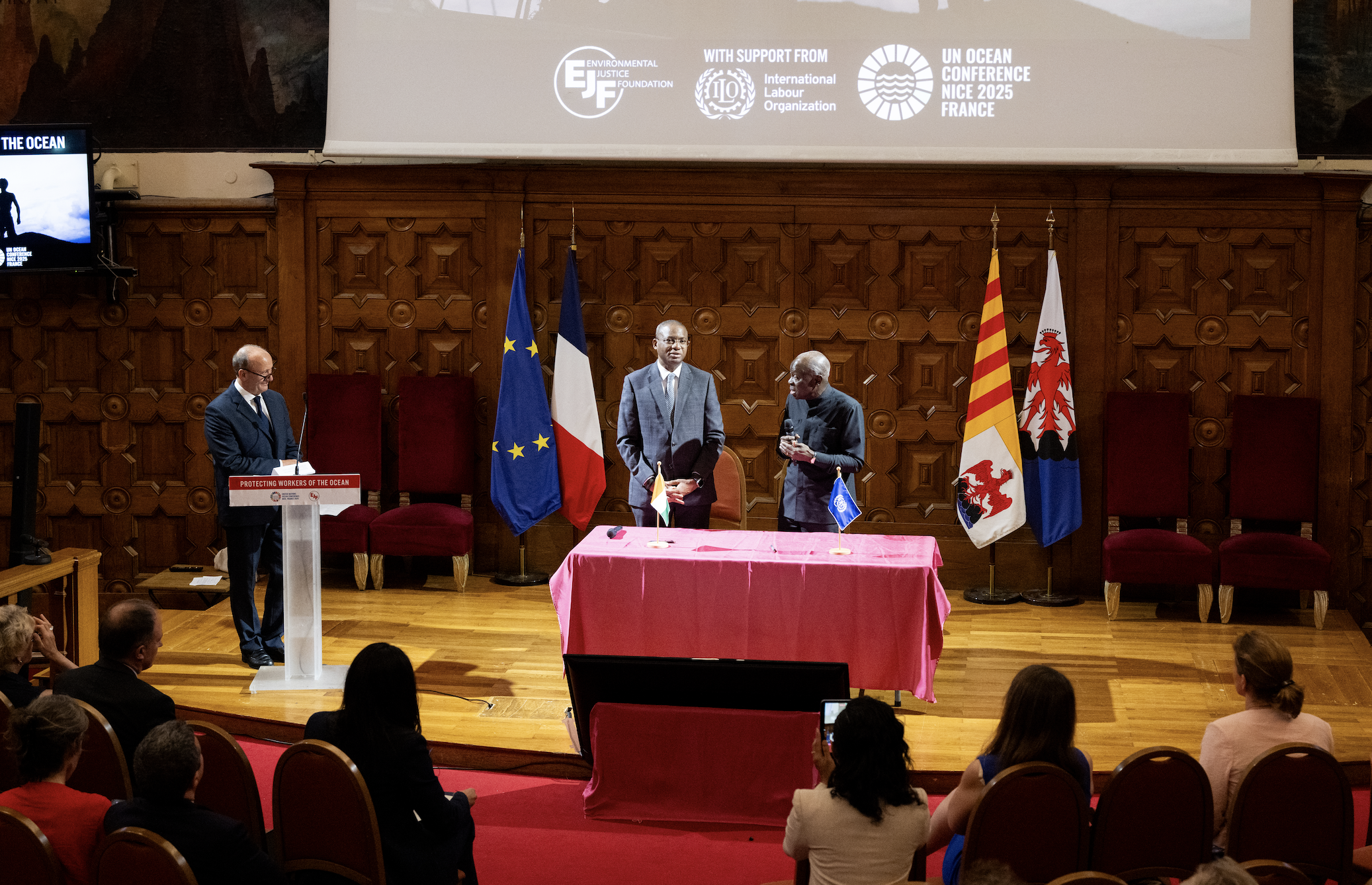
Press release: Unilateral deep-sea mining rejected at UN Ocean Conference
Deep-sea mining risks potentially irreversible damage to Earth’s last untouched ecosystem. Yesterday evening at UNOC, government officials, a UN Special Rapporteur, Renault, civil society and marine scientists emphasised global backing for a precautionary pause and rejected any rush to the deep that aims to bypass the International Seabed Authority. Financial institutions also revealed new commitments not to finance deep-sea mining.
The event followed the President of the European Council, António Costa, outlining the EU’s support for a deep-sea mining moratorium the previous day, and new national-level commitments to a pause or a moratorium, bringing the total to 37.
Jean-Noël Barrot, Minister for Europe and Foreign Affairs of France, said: “Any future exploitation of the seabed cannot happen, ever, if it is not grounded in science and if it is not grounded in multilaterally based rules. We will not allow for the abyss to be sold or exploited without previous scientific exploration and multilateral rules established by the International Seabed Authority.”
Carsten Schneider, Minister of the Environment, Climate Action, Nature Conservation and Nuclear Safety of Germany, said: “It is not possible to make decisions on the large-scale commercial use of the seabed based on the 0.0001% of the area that has been researched. The International Seabed Authority has the sole mandate to regulate and, if appropriate, approve mining activities. We are calling on all countries to recognise this. These valuable deep-sea ecosystems deserve our continued joint efforts to protect them.”
UN Special Rapporteur Astrid Puentes said: "The precautionary principle is international law, accepted by the International Court of Justice. This court covers all states, whether or not they are a part of the UN Law of the Sea Convention."
"The right to a healthy environment includes healthy ecosystems and biodiversity. Where we have irreversible risks or a severe risk for irreversible damage to the environment or human health, we need to implement the precautionary principle. Deep-sea mining is exactly the reason why we have the precautionary principle, and we need both states and businesses to do the right thing and to implement this."
Georgina Guillén-Grillo, Ambassador and Director General of Foreign Policy of Costa Rica, said that the seabed “has been declared the common heritage of humankind. It's a principle enshrined in the United Nations Convention on the Law of the Sea, but it's also already customary law. The International Seabed Authority, on behalf of humanity, has to manage this area. At this moment, there is no way we can start mining activities in the bottom of the ocean.”
Cléa Martinet, Vice President for Sustainability at Renault Group and AMPERE, said: “We were quite sure deep-sea mining would damage the life cycle assessment that we would make on our electric vehicles. We wanted to support all initiatives that had to do with refining and recycling end-of-life batteries, and not deeper and further research into other streams and resources that are scientifically not reliable.”
Dr Diva Amon, Marine Biologist, said: “We need to have a robust understanding of the ecology of these places where mining may occur. It's not just knowledge gaps, it's knowledge chasms. We need more time to gather the information so that we can ensure that no environmental harm is done if mining does move forward.”
Ms. Marguerite Culot, Expert Nature, Caisse des Dépôts Group, said: “We know that for fighting poverty, for ensuring prosperity, we need to be bold, we need to be exemplary, we need to be innovative, and we need to act collectively. We also need to finance a new economy, an economy which might consider biodiversity, an economy which might consider the ocean. That’s why we took the initiative not to finance deep-sea mining.”
Thao Fabregas, Head of Environmental Strategy, Crédit Agricole, announcing a new commitment not to finance deep-sea mining, said: “We're sharing this position with you today because we really hope that it will inspire other financial actors and also companies to act on deep-sea mining.”
Jessica Battle, Lead No Deep Seabed Mining Initiative, WWF International, said: "Momentum for a moratorium or a pause is growing, from 4 countries at UNOC2 in Lisbon to 37 countries today. We encourage additional governments and businesses to join this movement."
Steve Trent, CEO and Founder of the Environmental Justice Foundation, described today as “a moment when decisions about the deep sea will have lasting consequences for our planet and future generations”. He noted that deep-sea mining relies on “unproven technology, outdated assumptions, and volatile markets”.
ENDS
Notes to editors
A full list of the 37 countries now in favour of a pause, moratorium or ban on deep-sea mining can be found here.
About EJF
Our work to secure environmental justice aims to protect our global climate, ocean, forests, wetlands, wildlife and defend the fundamental human right to a secure natural environment, recognising that all other rights are contingent on this. EJF works internationally to inform policy and drive systemic, durable reforms to protect our environment and defend human rights. We investigate and expose abuses and support environmental defenders, Indigenous peoples, communities, and independent journalists on the frontlines of environmental injustice. Our campaigns aim to secure peaceful, equitable and sustainable futures. Our investigators, researchers, filmmakers, and campaigners work with grassroots partners and environmental defenders across the globe. For more information, please contact media@ejfoundation.org.
Cover image: A ‘family photo’ with three senior leaders: Jean-Noël Barrot of France, Carsten Schneider from Germany, and Costa Rica’s Georgina Guillén-Grillo.
SIGN UP FOR OUR EMAILS AND STAY UP TO DATE WITH EJF

